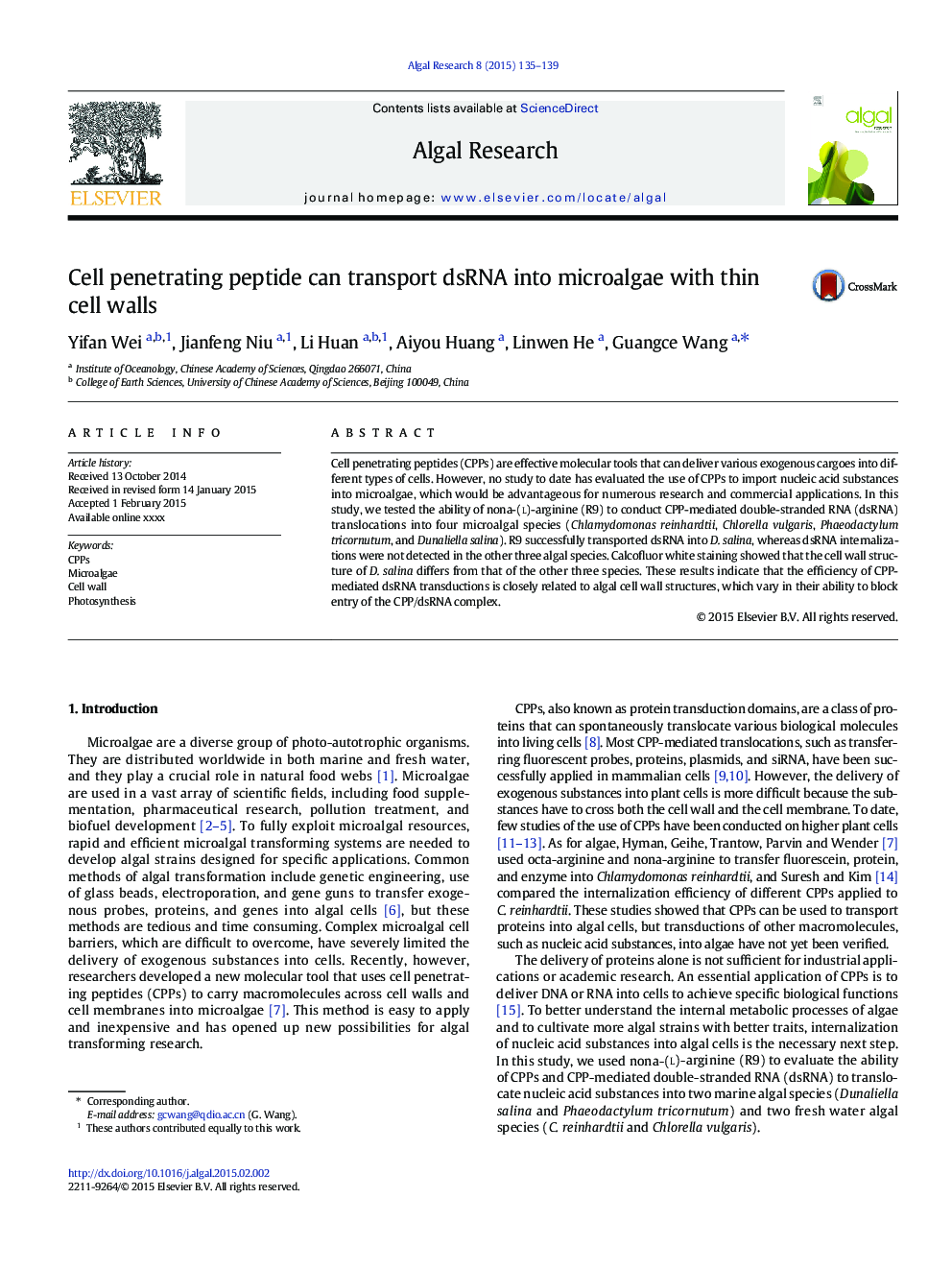| Article ID | Journal | Published Year | Pages | File Type |
|---|---|---|---|---|
| 8088218 | Algal Research | 2015 | 5 Pages |
Abstract
Cell penetrating peptides (CPPs) are effective molecular tools that can deliver various exogenous cargoes into different types of cells. However, no study to date has evaluated the use of CPPs to import nucleic acid substances into microalgae, which would be advantageous for numerous research and commercial applications. In this study, we tested the ability of nona-(l)-arginine (R9) to conduct CPP-mediated double-stranded RNA (dsRNA) translocations into four microalgal species (Chlamydomonas reinhardtii, Chlorella vulgaris, Phaeodactylum tricornutum, and Dunaliella salina). R9 successfully transported dsRNA into D. salina, whereas dsRNA internalizations were not detected in the other three algal species. Calcofluor white staining showed that the cell wall structure of D. salina differs from that of the other three species. These results indicate that the efficiency of CPP-mediated dsRNA transductions is closely related to algal cell wall structures, which vary in their ability to block entry of the CPP/dsRNA complex.
Related Topics
Physical Sciences and Engineering
Energy
Renewable Energy, Sustainability and the Environment
Authors
Yifan Wei, Jianfeng Niu, Li Huan, Aiyou Huang, Linwen He, Guangce Wang,
